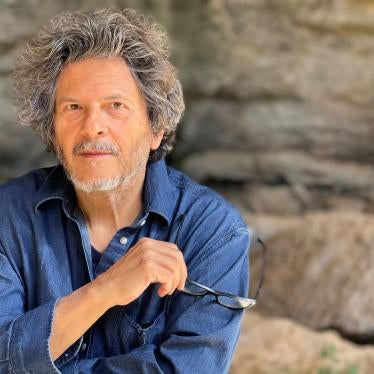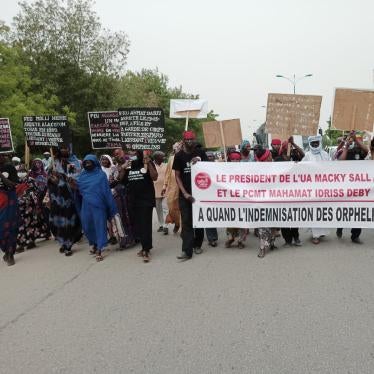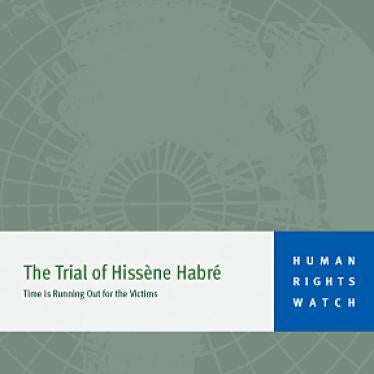Dakar, Senegal - A Belgian court last week charged Hissène Habré, the former dictator of Chad, with crimes against humanity and torture, paving the way for him to be extradited from his exile in Senegal.
Ironically Belgium's "universal jurisdiction" law, under which Habré was indicted, was repealed two years ago after the Belgian courts were flooded with atrocity cases from around the world.
Dubbed an "African Pinochet," Habré could become the first former dictator to face his victims in the courts of another country. His indictment provides a timely rejoinder to those who would undermine the emerging system of international justice.
Hissène Habré seized power in Chad in 1982 with support from the United States, which saw him as a bulwark against the expansionist designs of Libya's Muammar el-Qaddafi. During his brutal eight-year reign, he carried out ethnic cleansing campaigns against clans whose leaders opposed his rule.
Thousands of documents which I discovered scattered knee-deep on the dusty floor of the abandoned headquarters of Habré's dreaded political police, the Documentation and Security Directorate, show how the directorate hunted down the regime's suspected opponents.
More than 12,000 abuse victims are named. The lists of dead prisoners add up to 1,208, confirming what victims told me - that most of those who entered Habré's dungeons, including one at the presidential compound, never came out alive.
After Habré was ousted in 1990 by his former military chief, Chad's current president, Idriss Déby, he settled in a seaside villa in Senegal, where he appeared to be out of the reach of justice.
But five years ago, a group of Habré's victims - inspired by the London arrest of the former Chilean dictator Augusto Pinochet - flew from Chad to Senegal to file complaints against him. Even they were surprised when a bold young Senegalese judge listened to their testimony and indicted Habré on charges of crimes against humanity.
When Senegal's supreme court ruled that Habré could not be tried there for crimes committed in Chad, the victims filed cases in Belgium under that country's ambitious "universal jurisdiction" law, which allowed Belgium to try the perpetrators of large-scale atrocities no matter where they were committed.
In 2002 a Belgian judge made a dramatic visit to Chad, where he and a team of Belgian police officers toured Habré's prisons and mass grave sites, interviewed witnesses and requisitioned the unearthed Documentation and Security Directorate files.
But the case against Habré was almost thrown out again when the Belgian law became a victim of its own popularity and complaints against foreign leaders began to pile up.
The Belgian government repealed the law, but in consideration of the work already invested in the Habré case, it was allowed to go forward under a grandfather clause.
Habré's indictment means that Senegal will now be asked to extradite him to Belgium to stand trial. Although Habré has lavishly spent the millions he looted from the Chadian treasury to buy influence in Senegalese society, President Abdoulaye Wade of Senegal has consistently said that he has no objections to Habré's extradition.
The Habré case serves as a powerful reminder of the benefits of international justice as a last resort. Had Habré's victims not been able to bring their case in Belgium, the former dictator would most likely have continued to enjoy his opulent retirement.
Chad's current government supports the effort to hold Habré accountable abroad and took the unprecedented step of formally waiving his immunity so he could be tried in Belgium. But Chad doesn't want to risk bringing Habré back home, and if it did, it could not guarantee a fair trial. The International Criminal Court cannot hear the case because the crimes took place before its statute came into force.
The only way that Hissène Habré could be made to answer for his atrocities was for the courts of a third country to take up the case. This is precisely what Belgium's courts have agreed to do. If Senegal grants extradition, Habré's victims will at last be able to confront him in a court of law.








